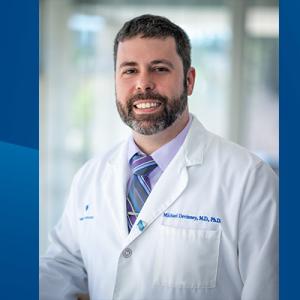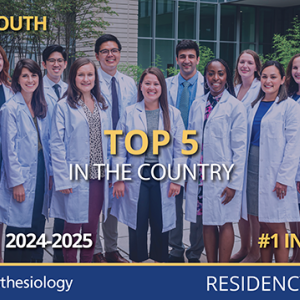Pioneering Treatments for Phosgene Inhalation Injuries
Congratulations to Dr. Satya Achanta on being awarded a $1,109,637 UG3 grant from the National Institutes of Health for his research that could mark a pivotal advancement in targeted treatments for injuries from phosgene gas, a terrorism and warfare agent.
Examining the Impact of New Tobacco Product Designs
Congratulations to Dr. Sven-Eric Jordt on receiving a $2,395,528 R01 National Institutes of Health grant to investigate the composition of novel tobacco products and their potential role in facilitating nicotine addiction.
Dr. Devinney Awarded Grant to Further Study Underlying Mechanisms of Delirium
Congratulations to Michael Devinney, MD, PhD, on being awarded a $894,431 K23 grant from the National Institutes of Health to investigate the role of cerebrospinal fluid complement activation in delirium and post-ICU long-term cognitive impairment.
Postdoctoral Fellow Awarded Alzheimer's Association Research Fellowship
Congratulations to Dr. ChengCheng Song of the Terrando lab on receiving a highly competitive $199,969 grant for her project aimed at understanding the long-term impact of postoperative delirium on Alzheimer’s disease hallmarks.
Some E-Cigarette Chemicals Mimic Nicotine, Possibly Bypassing Regulation
A new publication in JAMA, co-authored by Duke Anesthesiology’s Drs. Sven-Eric Jordt and Sairam Jabba, finds that some tobacco companies are replacing nicotine in e-cigarettes with related chemicals to apparently bypass health regulations with inaccurate disclosure of the quantity on packaging.
Anesthesiology Faculty Awarded Grant to Develop Spacewalk Protocol
Congratulations to Dr. Richard Moon on receiving a $249,023 grant for a pilot study aimed at developing NASA prebreathe protocols to minimize decompression sickness risk during extravehicular activity, crucial for astronaut safety during spacewalks.
Celebrating Dr. Madhav Swaminathan
Following 24 years of service at Duke, we recognize Madhav Swaminathan, MD, MMCi, FASE, for his unwavering commitment, exceptional leadership, and significant contributions as vice chair for faculty affairs and extend our best wishes as he embarks on the next phase of his distinguished career.
Duke Anesthesiology Residency Program Secures Top Five National Ranking
Doximity’s 2024-2025 Residency Navigator once again ranks the Duke Anesthesiology Residency Program #5 (by reputation) among programs in its specialty, nationwide, and #1 in the south and #1 in North Carolina.
Dr. Moon Honored for Excellence in Diving Medicine
Congratulations to Richard Moon, MD, on receiving the Excellence in Diving Medicine Award from the Undersea & Hyperbaric Medical Society in recognition of his outstanding contributions to the field.
Class of 2024 Graduates from Duke Anesthesiology Training Programs
Congratulations to the 15 residents and 36 fellows who graduated from Duke Anesthesiology’s nationally acclaimed residency and fellowship programs on June 10 and 11. View event highlights and learn about future plans for the graduates.










